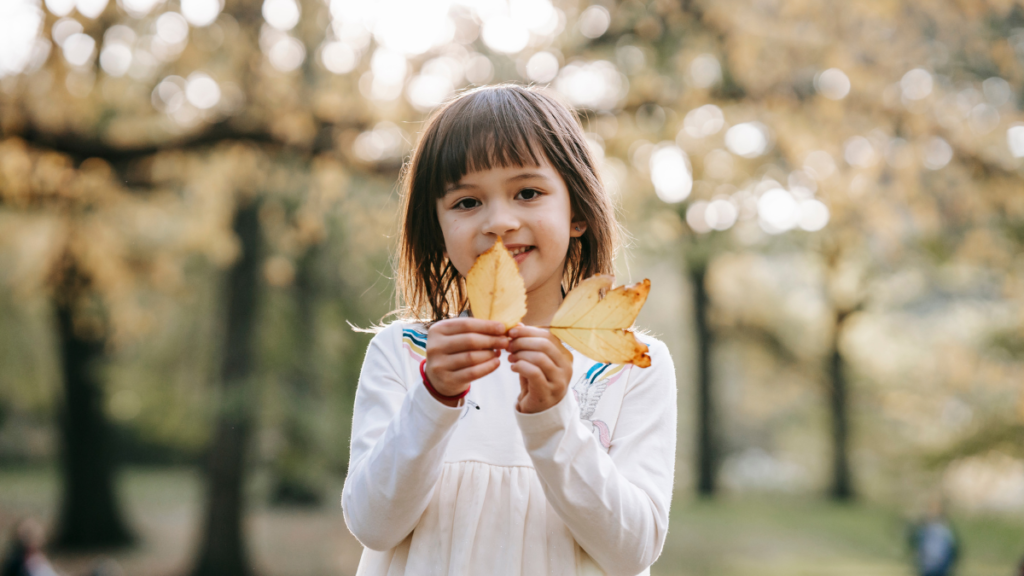
The most valuable lessons in life begin from birth. Long before your little one is taught to read, write or count, there are valuable life skills he or she should be learning. Emotional intelligence is the ability to interpret, understand and respond to our own and others’ emotions. It’s this skillset that could make the biggest difference to your child’s future development and well-being. We want our children to be equipped with the emotional skills it takes to face the world. With these values in place, your child is likely to be happier, more confident and experience more healthy relationships in his or her adult life. All these skills can be taught to young children and the foundations laid from birth, and are straightforward to encourage. As a parent, you are in the perfect position to be the teacher. And by practising these essential skills yourself, you’ll become an even better parent!
Babies tend to be happy by default. But as we grow up we lose the ability to be in the moment, worrying about tomorrow or rethinking yesterday. But you can teach toddlers to hold onto this baby-happy skill. When you go for a walk in the park, prompt a toddler to notice everything. Try asking if he or she can hear the birds, spot a yellow flower or feel the wind. If you have more than one child, turn it into a spotting game by asking ‘who can?’ rather than ‘can you?’. Do this with babies too, as it draws their attention to what is happening and teaches the vocabulary they will one day use to describe it themselves. Being ‘in the moment’ will also help build vivid memories.
Learning to be kind and understanding makes children happier. Children who are kind also find it easier to make friends. The latest research suggests kindness is inbuilt and simply needs to be reinforced. With toddlers, try playing a game called “this is my friend’. Pair the children up and help name as many brilliant things about their friend or sibling as they can. It makes both children feel good. If your children are too young to express these feelings, name their good qualities yourself. They will respond warmly, especially if you give examples of very recent behaviour to back up your descriptions.
If you take the time to listen to your child, she is likely to follow your example and become a good listener herself. So when your toddler has something important (to her!) to tell you, take the time to leave the washing up for a moment, squat down so you are on her level, and give your undivided attention. Repeating some of what your child has told you shows you have listened.
Children are naturally curious about the world and it’s up to us to foster that fascination. It can be tedious when your child asks “why?” for the billionth time, but this is how he explores the world. Pay attention to what your child is naturally interested in, and get interested too, even if it means making mud pies. The best way to encourage a sense of adventure in your child is to have one yourself.
Empathy is tough for a toddler since he is hard-wired to see himself as the centre of his world, but if you show empathic behaviour he will eventually understand. Try naming emotions as they crop up and explain the cause: ‘Sam is upset because Toby took his toy’. Then ask a question that requires your child to empathise: ‘How can we help Sam feel better?’ When your toddler finally peeks outside his self-centred bubble, he’ll have the tool of empathy ready.
We go to great lengths to avoid disappointing our children. But removing many of life’s little injustices means children need help learning how to deal with disappointment, focus on your child’s effort, rather than the outcome. Find something specific to praise, such authentic praise will boost self-esteem, even if your child fails to achieve what he or she wants.
Trust is the first quality babies learn, they either learn to trust or to mistrust and all else is based on this. The secure base you and other caregivers provide is fundamental. When a baby trusts her environment and feels securely bonded to her parents, she is safe to express herself. So do recognise that all the tiny acts of caring for your child add up to this core lifeskill, and give yourself a pat on the back. All those hours of hard work build the launchpad that will propel your child into a happy and confident adult life.
Talking about emotions will help your child identify and name feelings. Start with the simple ones – happy and sad – and move on to complex feelings such as confusion and anger. Toddlers will find it hugely reassuring to learn that intense emotions are simply feelings that come and go, and not a fixed part of themselves.
© 2023 All rights reserved Baby & Toddler - part of parent promotions